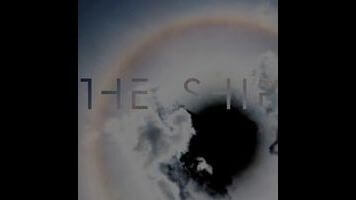Brian Eno’s dark near-masterpiece is well worth the struggle

At the age of 67, and with one of the most accomplished careers in modern music behind him, Brian Eno would have every right to rest on his laurels and spend the rest of his career producing Coldplay albums and earning big paychecks. Lucky for us, he has the type of brain that simply cannot be turned off, and even after decades of unbridled creativity, Eno is still pushing boundaries and making innovative music. This holds true for his latest work, The Ship, which can hold its own among the very best in a career full of brilliant work.
The Ship is an intriguing anomaly for Eno, as it’s both an ambient and a vocal album. This might bring back memories of classics like Another Green World or Before And After Science, but a more apt comparison might be Discreet Music. After about seven minutes of atmospheric music—in which drops of water let us know that, as the title would suggest, this album is taking place on a ship at sea—Eno’s vocals come booming in like the voice of God. It’s omnipresent for much of the album, reminiscent of the vocals on Talking Heads’ “The Overload.” While Eno’s are jarring at first, they eventually blend in and become another part of the atmosphere.
One unavoidable fact about this album is how unrelentingly dark it is. The music is often foreboding, but the lyrics describe a world of utter hopelessness. On the title track, we hear about “the illusion of control,” while “Fickle Sun (i)” laments being forced to toil under the heat of its title. For quite some time, the listener is lead to believe there is no escape from the misery the narrator is describing.
Luckily, the dread eventually lets up. The second part of “Fickle Sun,” subtitled “The Hour Is Thin,” is a three-minute spoken-word piece in which the situation seems to have mellowed. In a clever bit of foreshadowing, Eno references “the velvets of war,” which sets us up for the third portion of “Fickle Sun,” a gorgeous take on The Velvet Underground’s “I’m Set Free.” In terms of sheer beauty, this is easily the best part of The Ship, with Eno’s understated vocals blending in expertly with the gentle atmospherics. After taking us on a ride through hell, Eno finally lets go, and when the listener sees the light at the end of the tunnel, it makes it all the more beautiful.
The Ship is a thrilling album, emotionally draining in parts, but more than worth the struggle. Forty-one years after Another Green World, Eno is still foraging for new musical ground, and what he’s able to come up with is nothing short of miraculous. When listening to The Ship, we get the sense that he will never stop, that until his final day, Brian Eno will still be looking to take music somewhere that no one else has thought of before. This is undeniably something that every music fan should be grateful for.